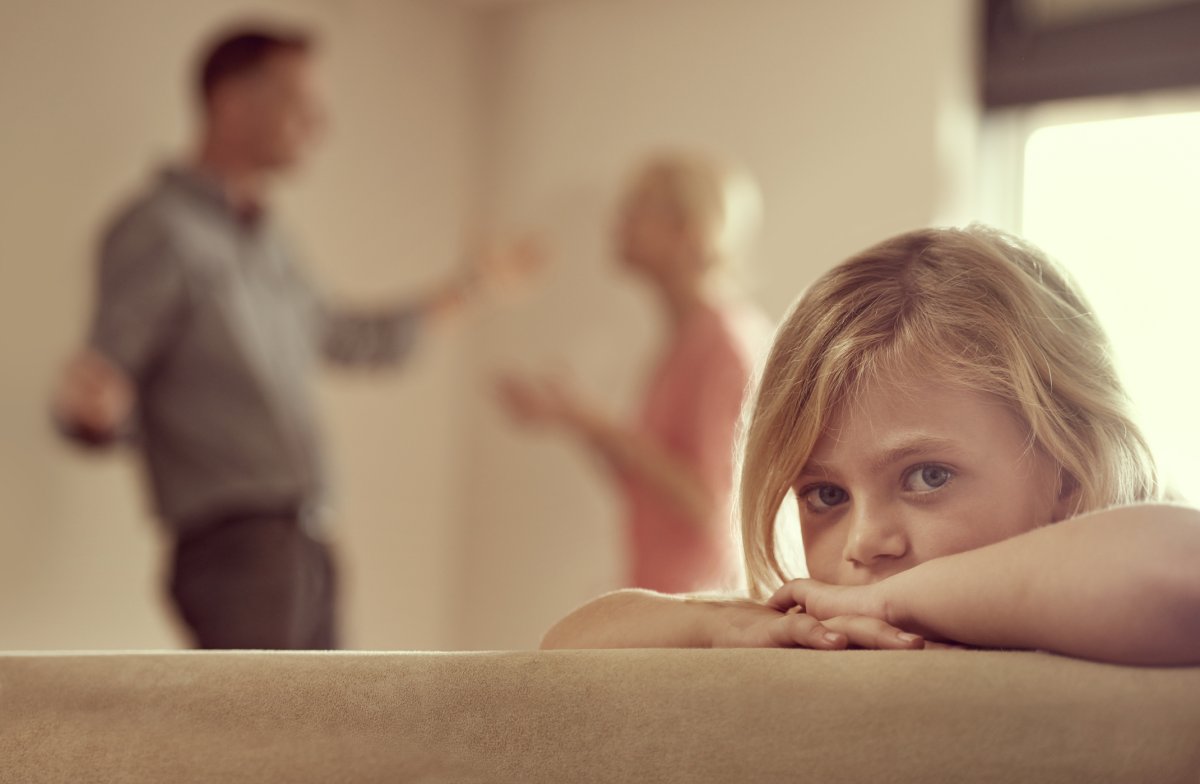Preschool children of divorce who live with mostly or only with one parent following separation have more psychological symptoms than those who live in joint physical custody situations, a new study has found.

According to researchers from Uppsala University, Karolinska Institute, joint custody children who split their time in half between both parents show less behavioural problems and have less difficulties than children who spend most of their time with one parent.
READ MORE: How to make co-parenting work: Mom is grateful for child’s step-mom
“Previous studies have shown that school children and adolescents fare well in joint physical custody,” researchers said in a statement. “Child experts have claimed the practice to be unsuitable for young children since they are assumed to need continuity and stability in their parent relations. However, few studies of preschool children with joint custody have been conducted.”
Researchers looked at 3,656 children in Sweden between the ages of three and five. They compared the behavioural problems and mental symptoms of 136 children in joint physical custody, 3,369 in nuclear families, 79 who lived mostly with one parent and 72 children who lived with only one parent.
Symptoms were assessed using a questionnaire called the “Strengths and Difficulties Questionnaire” which were filled out by both preschool teachers and parents.
- Canada’s income gap is growing. Will Budget 2024 help affordability?
- Shoppers faces proposed class action over claims company is ‘abusive’ to pharmacists
- Ontario premier calls cost of gas ‘absolutely disgusting,’ raises price-gouging concerns
- What’s going on with the Cybertruck? Tesla seems to have halted deliveries
Both teachers and parents indicated that children who lived mostly or with only one parent experienced more difficulties than children of joint custody agreements or in nuclear families. However, there were no significant differences between kids in nuclear families and joint physical custody agreements among the parental estimates. Preschool teachers also reported fewer symptoms among children of nuclear families.
Parenting expert Ann Douglas agrees that when it comes to dealing with situations like divorce within families, it’s better and healthier for the kids if parents are on the same page in their parenting approaches.
“Kids benefit when parents are on the same page,” Douglas says. “They feel safe and secure when parents are sending them consistent messages, and when they can count on consistent expectations and routines. This is because our brains are designed to make sense of patterns. So our kids want to know what to expect from us, and as a result, they’ll invest a lot of mental energy when trying to figure this out. But if they have to make sense of an entirely different set of rules from one parent to another, that requires a whole lot more mental energy.”
READ MORE: Step-parenting advice: How to navigate a new blended family
That’s why parents who are experiencing conflict need to keep their focus on what’s best for their kids, she adds.
“Remind yourself what yourself and your child’s other parent have in common, which is a shared love of your kids and a desire to see them grow up healthy and happy,” Douglas says. “Then focus on ways you can focus your energy on that all-important goal. This means thinking about what you want for your kids a year down the road and what you want for them as they grow into adulthood. Then connect the dots between where you are today and where you hope you’ll be in terms of your relationships with your kids.”
Then, Douglas says, think about parenting in ways that support your long-term relationship goals and your hopes for your kids.
“So if you really centre in on that vision or dream or goal, then it’s much easier to check your behaviour against this standard,” she says. “Also look for opportunities to recognize and express appreciation to your former partner when he or she manages to do this really well as well.”
Try to separate your feelings of this person as a partner and as them as your co-parent, Douglas says. This will make it easier for you to celebrate the other parent’s achievements on the parenting front as opposed to getting caught up in the emotions.




Comments